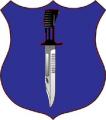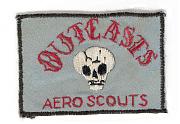I can see in his writing that LTC Gentile is a soldiers soldier who see's the job for what it is; that being a fighter who's overarching purpose is fighting.
This being said I would think the true determining factor in how and when a counter-insurgency should be handled would be contingent on the expected outcome in the end.
In other words if one is fighting an insurgency in their own country for the survival of their pre-existing government/leadership infrastructure such as many communist/dictatorial countries have historically then attrition is a definitive goal of their actions.
Also in this context they seek to discourage any further growth of that insurgency through harsh and awe inspiring action designed to create fear of standing against their power.
This is where I think the greatest difference can be found in Iraq. One would not expect police officers to come into a riot/demonstration and shut it down through attritive actions despite how much the adrenalin rush might do for the the officers mental states in as far as believing in their cause.
If the ultimate goal of any military is to provide an environment in which a democratic construct and new culture of empowered populace may come into existence than you kind of have to change your approach from that of a traditional war or counter insurgency standard.
If your soldier staying in a joint station, armed and looking for the enemy is unable to feel relatively safe than one would assume that that local populace definately is not in a situation where they may try to stand up.
As soldiers your job is to fight this is true, just as a boxer's job is to box. There are however countless factors outside of the physical interaction that the boxer must study and be aware of in order to enter the ring confidently. Once the bell rings it comes down to mano y mano but if you know that the other guy can't last longer than 2 rounds than your first step is to avoid contact and keep him moving to wear him down.
This helps to equalize the battle when it does happen. and just as in the boxing match in order to win punches must be thrown so to even in counter insurgency the blows will come ( from both sides).
Long and short I think 3- 24 is not meant to redefine war so much as to guide and encourage thought before during and after the actions take place.













Bookmarks